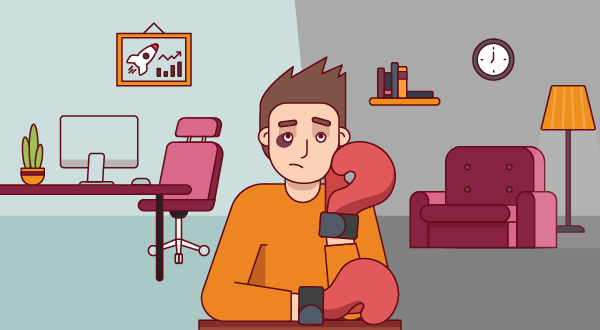Wil Schroter

A war cannot be won on two fronts — especially if you're a startup Founder.
When I talk to Founders, I often ask them, "OK, so things are tough at work — what are they like at home?" and it surprises them. First, it surprises them because it's a very personal question. Then, it surprises them because they realize why I'm asking.
I ask because I care about them as a person, and I know if they are fighting a war at work (aren't we all?) the only way to make it much worse is to go home to an equal or greater fight.
Our support at home is our greatest strength or Achilles Heel depending on what we have going on — and boy, do we all have a lot going on when it comes to our home life.
Two Battles, One Health Bar
I think of everything like a video game, and in this case, I think of our energy, focus, and mental state like a "health bar" that depletes as our character faces more trauma. A given startup, on a good day, usually runs that bar to zero (and blinking!) on a regular basis. It needs all that we have.
This means, and this is why I pose the question if we're depleted at the end of the day, and now we're dealing with some major shit at home, how exactly does that health bar get replenished?
We absolutely have to have some sanctuary where we can reset and recover. We have to get that health bar full, if not somewhat refilled, in order to be effective at what we're going to deal with day to day with our startups. No one has a health bar that outlasts both — not for long anyway.
The Superpower of Home
Conversely, if our home life, in whatever form that takes for us, is a place of revival, we can deal with an awful lot without breaking. It doesn't make it a picnic, but it gives us the stamina we need to get back in the fight and keep swinging.
People underestimate the value of a strong partner or home life when it comes to building a startup. This isn't just about building the startup, it's about making sure the Founder is healthy long enough to see it through.
We need to take our home lives seriously, and not pretend like one has no bearing on the other — they are intricately related. We can try to firewall them, and for a while we will make it appear to work, but in the end, we'll be depleting that health bar whether we admit it or not.
Both Sides Matter — Talk About Them
In the past, it was heretical in many circles to talk about your home life and work-life together. It was also unheard of to talk about mental health and personal wellness and look how well that worked.
We're at a critical time where the conversation about our performance is a holistic one. Our role as a Founder isn't a singular, cordoned-off role that magically removes itself from our entire life.
We can choose where and how to share that information, whether it's in a Founder Group, a therapist, or even our close friends — but we need to get it out of our heads when it's a problem because holding it in is a recipe for disaster.
Look, we all have a crazy struggle between home and work — it's “the norm.” What we need to do as a Founder community is to begin blending this discussion of our home and work lives into an overall dialogue about how we are, and where we need help. It's OK, and it's time.
In Case You Missed It
We Are NOT Our Startups Being a Founder can be all-encompassing. We give everything we have to our startup, so how do we NOT attach our self-worth to its performance?
The Cost of Toxic Employees (podcast). We all know the value of having a star player on our team. But what about the opposite? Wil and Ryan discuss how to identify and handle toxic teammates before their impact spreads across the organization.
We Can't Keep Ignoring Founder Emotions There's no version of being a Founder where we just keep doing everything right without a care in the world. We need to start opening up about what's in our heads and process our problems before we perish from them.
Find this article helpful?
This is just a small sample! Register to unlock our in-depth courses, hundreds of video courses, and a library of playbooks and articles to grow your startup fast. Let us Let us show you!
Submission confirms agreement to our Terms of Service and Privacy Policy.
Already a member? Login
Start a Membership to join the discussion.
Already a member? Login

Eliminating any unnecessary complexity and living a simple life are keys to reducing opportunities for conflict.